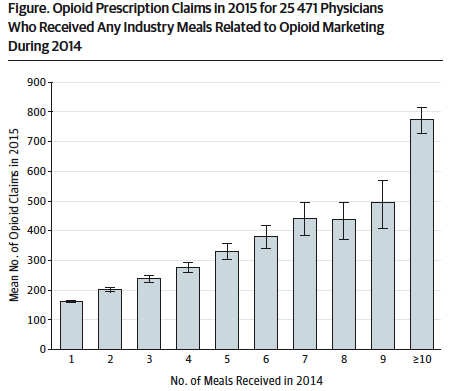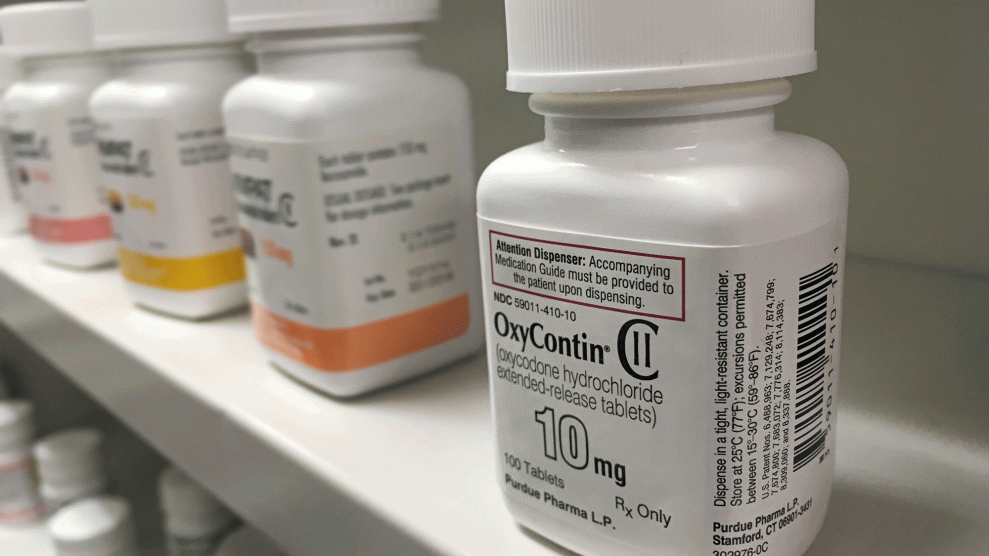
SARINYAPINNGAM/Getty
Amid a spiraling overdose epidemic, opioid prescribing is still on the rise for a small subset of physicians: those who receive funding from opioid manufacturers.
That’s according to a research letter published Monday in the Journal of the American Medical Association. The study combined two datasets: Open Payments data showing the funding that doctors received from opioid makers for things like speaking, consulting, travel, meals, and other non-research purposes in 2014, and Medicare data showing the number of opioid prescriptions those doctors billed the following year.
Physicians receiving payments from opioid makers—about seven percent of all doctors—prescribed about four times as many opioids as those who didn’t. Strikingly, the general trend held not just for the select few prescribers receiving big consulting and speaker fees, but for the many more who had eaten meals paid for by the drug companies—a common practice in which pharmaceutical representatives bring lunch to clinicians’ offices or take the doctors out to eat. As the chart below shows, with each additional so-called “industry meal” that a doctor consumed (the typical cost of which was just $13), the number of opioid prescriptions that the doctor wrote the following year increased.

Though the study didn’t prove that the increased prescription rates were a direct result of the meals, prior studies suggest that all payments—not just meals—are associated with increased prescribing, wrote lead author Dr. Scott Hadland, a pediatrician and researcher at Boston Medical Center’s Grayken Center for Addiction, in an email.
Sponsoring meals “is commonplace and goes largely unquestioned throughout the US,” he wrote. “Fewer than 1 in 50 doctors received big payments. The remainder mostly received inexpensive opioid marketing meals. Yet, these meals were clearly associated with increased prescribing on a large scale.”
Meals served as a cheap way to reach a lot of doctors: Of the roughly 369,000 doctors who billed opioid prescriptions to Medicare, about 25,000 had at least one meal sponsored by opioid makers. The meals cost the companies less than $2 million. Meanwhile, only 436 of the physicians received payments of more than $1,000.
All told, opioid makers spent about $9 million on non-research physician payments in 2014. About half of that came from Insys, the pharmaceutical company that makes fentanyl spray Subsys. The company’s marketing tactics have recently come under fire: Insys repeatedly misrepresented its product and the patients using it in order to boost sales, according to an investigation released last fall by Sen. Claire McCaskill (D-Mo.). In October, founder John Kapoor was arrested on fraud and bribery charges.
A number of states have implemented policies over the past year aimed at curbing pharmaceutical influence on doctors. But Hadland notes that in some cases—like New Jersey’s recent rule capping physician pharmaceutical payments to $10,000 a year—the policies only affect a small group of prescribers. As he said, “The bigger public health problem is likely the widespread practice of offering low-value meals to physicians to influence prescribing patterns on a grand scale.”
















